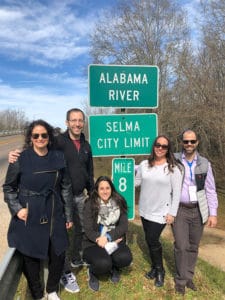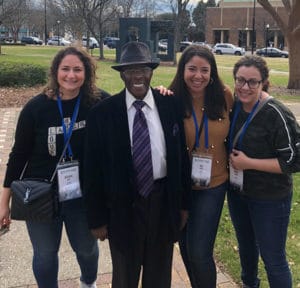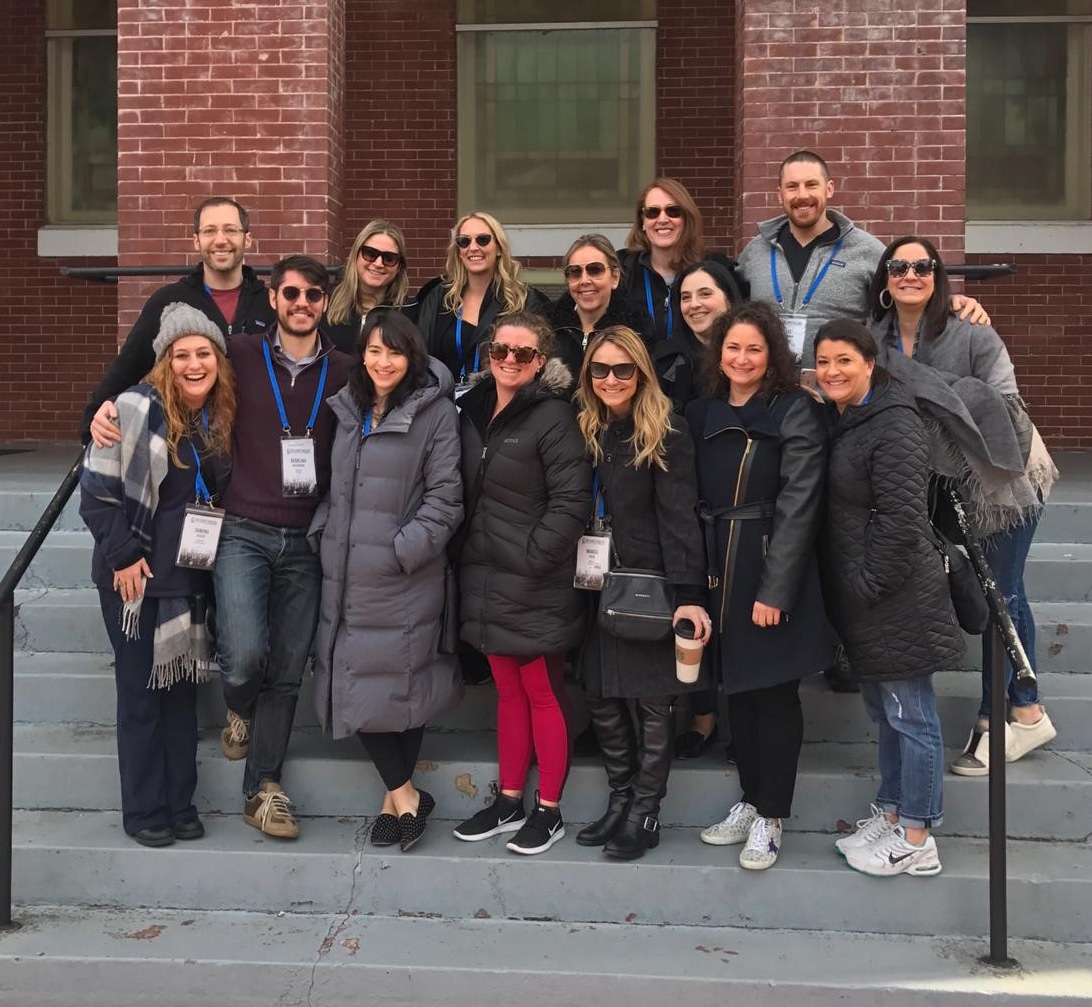-
13 February 2019

DC Cabinet in Selma, AL
Three years ago, I joined National Young Leadership Cabinet, a program that trains, inspires, and cultivates leaders in their 30s and 40s who aspire to be the next generation of global Jewish leaders and philanthropists.
The well-known words of Hillel the elder, “If I am not for myself, who will be for me? But if I am only for myself, who am I? If not now, when?” have been a guiding force in my life. These Jewish values steered me to study education policy and community organizing, and to spend the past 15 years working to increase opportunities for African-American youth through improved access to quality education.
So, when NYL Cabinet offered me the opportunity to travel to Alabama, the heart of the civil rights movement, for their first Civil Right Mission, I jumped at the chance to “get on the bus.” Since joining Cabinet, I have traveled to India, Morocco, and Spain on study missions. While each of those trips has been incredible, enabling me to learn about the world through a Jewish lens, studying how past generations of Jews mobilized in support of the African American community speaks to the core of who I am as a Jew.
On the Civil Rights Mission, we traveled through the streets of the Montgomery bus boycott, paused in remembrance at the 16th Street Baptist church in Birmingham, and walked across the Edmund Pettus Bridge in Selma, honoring those who stood firm in the face of the most base and vitriolic hatred. We bore witness – listening to firsthand accounts from those who affected lasting change by marching and protesting in pursuit of voting rights and equal treatment.
But what rocked me to my core was our visit to the brand-new Equal Justice Initiative Legacy Museum, which painstakingly maps the African-American story from slavery to ghettoization, disenfranchisement, and mass incarceration.
It’s been more than 50 years since the passage of the Voting Rights Act of 1965. Yet, the Equal Justice Initiative explains that, in the past 40 years, the prison population has risen from 300,000 to 2.3 million. Today, one in three black men between the ages of 18 and 30 is in jail, prison, on probation, or on parole. And, as a result, one in thirteen African-Americans cannot vote due to disqualifying criminal convictions.

Jessica and her sisters, Stacy Conroy and Ali Sher, with Rev. Calvin Woods Sr. who spoke about participation in the Civil Rights Movement
As Jews, oppression is a central narrative in our long history (If I’m not for myself, who will be for me?), as is our calling to help the oppressed (If I’m only for myself, who am I?). As a Jew – and even more so as human being — I left Alabama
with a call to action reverberating in my ears. At a time when division is easier than collaboration, we must step up as allies and find ways to partner with other minority communities.
It was with great pride that I looked at pictures of Jewish communal leaders walking hand-in-hand and standing tall with African American leaders in the 1960s. When future generations are studying this time in our history, will our community be documented on the front lines fighting for the oppressed? If not now, when?

